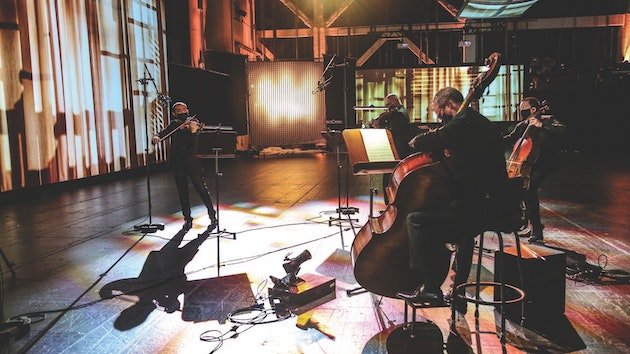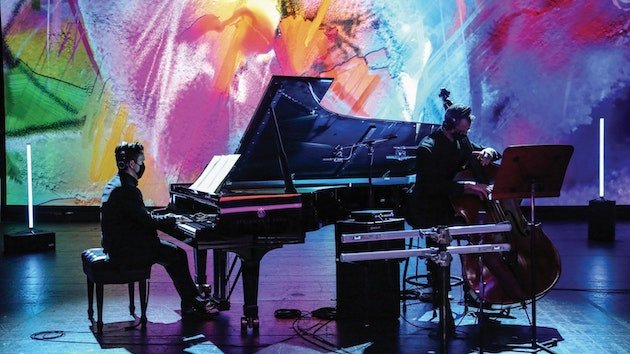
Soprano Julia Bullock may be living and working thousands of miles away in Munich, but in her double role as curator of and featured singer in the San Francisco Symphony’s online SoundBox: Lineage, she conjures an entrancing sense of close-up intimacy. Whether she paying glowing tribute to Nina Simone or fusing the program’s disparate musical selections into a gratifying whole, Bullock delivers. The 49-minute program, now available for streaming, is a triumph, plain and not nearly so simple as it looks.
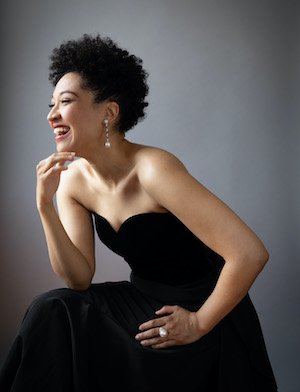
Produced under the organization’s SFSymphony+ brand, Lineage follows last month’s debut of Nostalgia, a SoundBox program crafted by music director Esa-Pekka Salonen. Bullock is one of eight collaborative partners Salonen tapped to help with artistic planning and programing. When everyone and everything pivoted with the onset of the pandemic, those initiatives all went virtual.
Where Nostalgia worked overtime to invoke the aural and visual sensorium of a live prepandemic SoundBox concert — those night-clubby, projection-rich evenings staged in a warehouse-like space at the backside of Davies Hall — Bullock dials back the overt, sometimes overly anxious stimulation. Instead, in a series of deftly devised joins and hinges between numbers, she builds a musical house of doors and windows, stairways and mirrors.
The result affirms the conviction she lays out in statement. Musicians are “hyper-conscious of their lineage,” she writes, and how it can “inform, influence, impact, and express itself.”
The foundation is laid early on. Bullock, performing alone in a recording studio setting in Germany, opens with a transfixing acapella account of Simone and Weldon Irvine’s “Revolution.” In a delivery at once magisterial and utterly natural, the singer makes “the daily struggle just to stay alive” a first-person manifesto, left open for the listener to read as she will. Politics, love, personal integrity, the pandemic — it’s all there in Bullock’s account of her own arrangement.
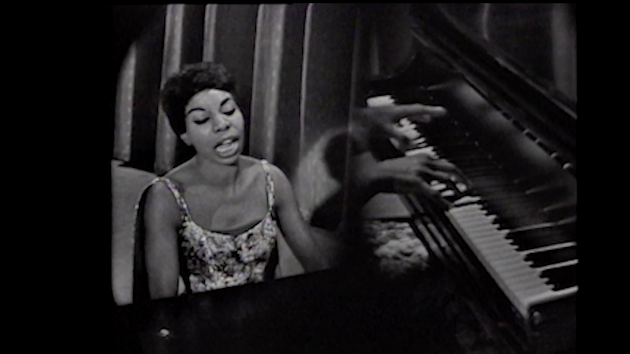
Then, in an inspired choice, Simone herself is onscreen, playing and singing Walter Donaldson and Gus Kahn’s “Love Me or Leave Me,” in a black-and-white TV clip from “The Ed Sullivan Show.” In a piano interlude, Simone vamps with a heady blend of Baroque and the infectious soft jazz of her own invention. It’s a slick chess move from there to the masked present-day pianist Sarah Cahill playing Bach’s A-Minor Invention.
The smooth and subtle segues continue, first to Hildegard von Bingen (a quietly ethereal performance recorded by the San Francisco Girls Chorus in 2003) and back to Simone, with Bullock riding into “Images” on the electronically sustained last chord of von Bingen’s O frondens virga. The Girls Chorus blends seamlessly into the voices of the San Francisco Symphony Chorus. Since neither ensemble is onscreen, Bullock and projection designer Adam Larsen send us swimming into a blue glade that slowly emerges from a dreamy abstraction. It’s the program’s most explicit use of visuals, yet it feels organic and perfectly tuned to the musical atmosphere. The technical wizardry is subtle and self-effacing.
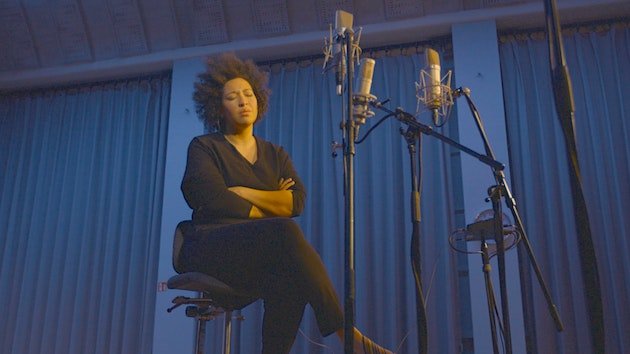
As Lineage proceeds, the connections loosen up and become more suggestive. When Coleridge-Taylor Perkinson’s “Plain Blue/s” (a betwitching Wyatt Underhill on solo violin) gives way to George Walker’s Lyric for Strings, the violinist is suddenly made part of a larger, becalming community. Those mood changes continue, harkening back to early ones and anticipating others to come. A two-movement Poulenc extract, from his Rapsodie nègre, echoes both Walker’s Lyric as well as the jittery, percolating energy of Elizabeth Ogonek’s “variations in many forms” from In Silence.
Bullock, happily, keeps returning. She does some pillowy scat singing in Aruán Ortiz’s Mompouana, connecting to musicians in far-off San Francisco as if they were in a tight recording session together. Bullock, whose clarity of diction and expression makes her an especially fine singer of poetic texts, gives Blake’s “Little Fly,” in a keen setting by Esperanza Spalding, a lightness of touch and lingering pathos. The “want of thought,” we hear in one line, “is death.” It’s still buzzing, a few minutes later, in Ogonek’s airborne percussion and gravity-free melodies.
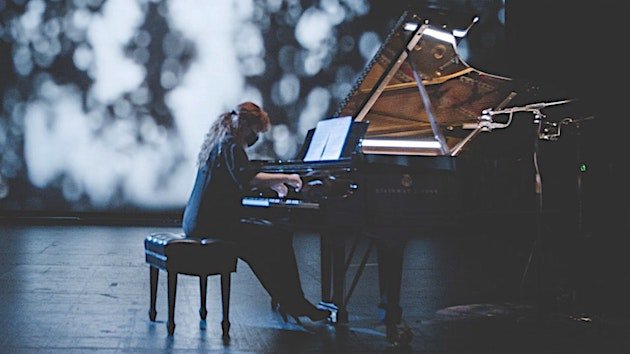
The program ends sublimely, with Ricky Ian Gordon’s anthemic setting of a Langston Hughes poem. The call to “gather up in the arms of your pity” the desperate and abandoned of ‘our weary city” revisits Simone’s summons to a “Revolution.” Bullock sings with a moving, mounting urgency set deep in the timbre of her lustrous voice and dramatic phrasing.
Pay attention to the world as we find it, to its sorrows and joys, Lineage reminds us, especially after this long year of a world put in peril. Like musicians attending to each other across the centuries, we’re all connected.
